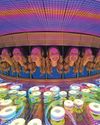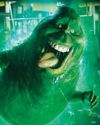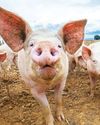
A famous scientist called Richard Feynman once said, "I think I can safely say that nobody understands quantum mechanics." Quantum physics is the study of things that are even smaller than atoms - the building blocks of all matter. Scientists have been studying the quantum world for more than 100 years, but there is little that they actually understand. This is because the outcomes of the theories and results of experiments are odd, and go beyond the limits of what humans can actually perceive. This is a realm where particles don't always act like particles and things can be in two places at once. Are you ready to dive into a mystifying and weird world?
Explaining a universe
Quantum physics attempts to explain how our universe works by studying the subatomic particles that make it, and how they interact with each other. Subatomic particles are the smallest bits of matter particles such as electrons and protons that make up atoms, and quarks, the smallest known particles.
The ideas behind quantum theory dates back to 1900 and a German physicist named Max Planck. His groundbreaking research built the foundations for other scientists, like Albert Einstein, to explore this mysterious and spooky zone.
Dead or alive?
Diese Geschichte stammt aus der Issue 62-Ausgabe von The Week Junior Science+Nature UK.
Starten Sie Ihre 7-tägige kostenlose Testversion von Magzter GOLD, um auf Tausende kuratierte Premium-Storys sowie über 8.000 Zeitschriften und Zeitungen zuzugreifen.
Bereits Abonnent ? Anmelden
Diese Geschichte stammt aus der Issue 62-Ausgabe von The Week Junior Science+Nature UK.
Starten Sie Ihre 7-tägige kostenlose Testversion von Magzter GOLD, um auf Tausende kuratierte Premium-Storys sowie über 8.000 Zeitschriften und Zeitungen zuzugreifen.
Bereits Abonnent? Anmelden

Camera Obscura
Imagine stepping inside a dark room, where the only source of light comes through one small hole in the wall.

MANCHESTER SCIENCE FESTIVAL
From 18-27 October, shoppers at the Arndale shopping centre in Manchester, England, will face a giant spider.

Should musicians stop touring?
Multiple concerts travelling around the world have a big impact on the environment.

Are ghosts real?
Plenty of people believe in ghosts, but it's hard to find proof.

SMASH STEREOTYPES
In an extract from his prize-winning book, scientist and writer Adam Rutherford shows you how to use the power of science to fight racism. This chapter, titled Myth-Busting, is all about sport.

Animal awareness
What would it feel like to be another animal?

Hamza Yassin
Go behind the camera with a wildlife filmmaker.

WILDLIFE WATCH
Ben Hoare goes on a safari from his sofa to discover how nature documentaries are made.

Big bum breakthrough
A team of researchers who found out that mammals can breathe through their bottoms have won a prize at the lg Nobel awards.

A jaw-dropping undersea snap
A photograph of a Bryde's whale feeding on a heart-shaped \"bait ball\" of sardines has won the Ocean Photographer of the Year contest.